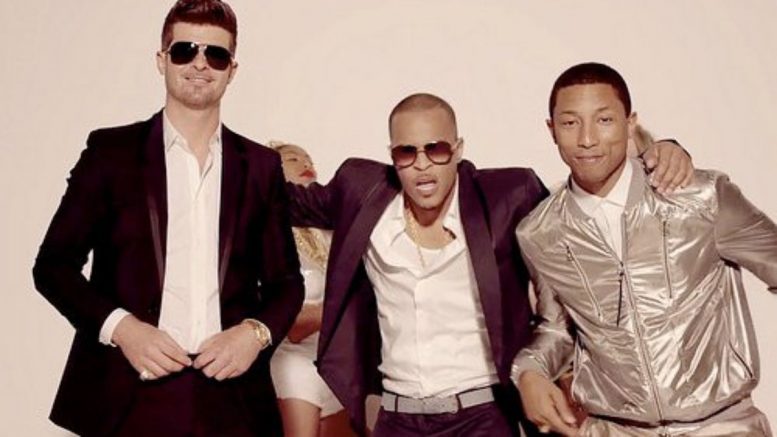The good news for Pharrell Williams and Robin Thicke is that their 2013 track, “Blurred Lines,” is still being talked about all these years and pop songs later. The bad news is that most of the chatter has been about the copyright lawsuit brought by Marvin Gaye’s family, who claimed that Williams had infringed on the late singer’s “Got To Give It Up.” Last year, a jury found in favor of the plaintiffs, who were originally awarded $7.3 million before a judge reduced that amount while still giving Gaye’s family a 50 percent ongoing royalty rate. Williams maintained he didn’t actually steal a bass line or lyric, which the jury seemed inclined to agree with at the time, finding that the 2013 song had really only ripped off the ”feel” of the Gaye track.
The verdict remains a bitter pill to swallow (for Williams, anyway), and not just because of the newly-halved, but-still-multi-million-dollar award. When the duo filed an appeal last year, they claimed they were also standing up for the music industry in general, since the lines between homage, parody, and infringement can get, well, you know. And Vulture reports that Williams and Thicke’s legal fight has just garnered significant support from the music community: 212 musicians, songwriters, and composers have signed an amicus brief in support of the appellants. Among them are Earth, Wind & Fire, Hall & Oates, Tears for Fears, Linkin Park, Three 6 Mafia, Weezer, Fall Out Boy, R. Kelly, Jennifer Hudson, and Jean-Baptiste.
The many signatories agree that this degree of castigation could potentially have an “adverse impact on their own creativity, on the creativity of future artists, and on the music industry in general.” Basically, no one should get their ass handed to them for allowing their influences to seep into their work. That makes sense, especially considering the jury decided against Williams and Thicke based off the similar “vibe” of the two songs in questions.
The verdict in this case threatens to punish songwriters for creating new music that is inspired by prior works. All music shares inspiration from prior musical works, especially within a particular musical genre. By eliminating any meaningful standard for drawing the line between permissible inspiration and unlawful copying, the judgment is certain to stifle creativity and impede the creative process.
Source: www.avclub.com





Be the first to comment on "200+ Musicians Have Signed an Appeal to Overturn Blurred Lines Lawsuit Verdict"